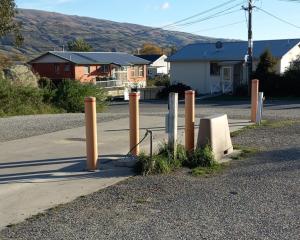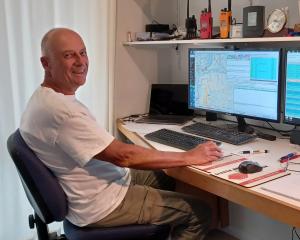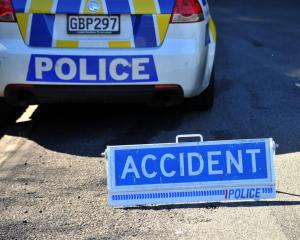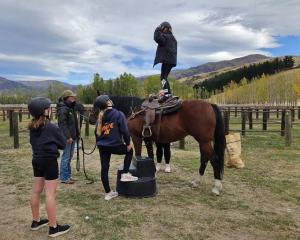An independent report into the future viability of Tarras Water Ltd, commissioned by another irrigation company, has prompted that company to change its stance on investment in the Tarras irrigation scheme.
John Morrison, secretary of Lindis Irrigation Ltd, tabled the report on day two of the Otago Regional Council's hearing on its proposal to amend its long-term plan to allow investment in the Tarras scheme in Cromwell yesterday.
He told the panel of councillors the report had made the company change its stance from neutral to believing that the council should invest in the scheme.
The report showed if the proposed minimum flow of 450 litres/sec for the Lindis River was imposed (as proposed if the Tarras scheme did not proceed) then there would not be enough water to go around and the Lindis company would have to decide which of its shareholders would have to forgo getting water.
After the meeting, he said that was exactly why the Lindis company had changed its stance.
''The only way for the Tarras community to have a sustainable future is to have another water source ... the Clutha [river].''
Mr Morrison was one of three submitters who supported the council's involvement in the scheme.
Gerald Dowling, for the Hawkdun Idaburn Irrigation Co and the Manuherikia Catchment Water Strategy Group, said the proposal made ''sound business sense''.
The other supporter, Mick Burdon, representing Westbrook Investments, said incentives must be given to farmers to encourage them to move to new schemes and that the council was already in business given it owned the Port of Otago.
That the council should not be involved in business was a common argument among eight other submitters opposing the proposal.
''Since when has it become legal for a council to act as a bank?'' Anna Skeet, of Alexandra, asked.
''The council has no mandate to invest ratepayer funds into private ventures,'' Robin Dicey, of Bannockburn, said.
''It is unjust and morally wrong to invest ratepayer money in a private irrigation scheme,'' Billie Marsh, of Tarras, said.
Opposing submitters argued the council's business should be the public good, not private good.
Graye Shattky, for the Central Otago Environmental Society, said it was a matter of balance and the council should ask who would benefit the most: ''This, it seems, benefits largely the private [good]''.
Mrs Marsh also questioned the figure of 40 families benefiting from the scheme.
She said, although she was not entirely confident of her exact figures, there were 33 farms in the Tarras district and 16 were outside the scheme or had their own schemes. Of the remaining 17, she said seven had indicated they would not be buying shares, five were ''definitely in'' and the other five were considering their options.
''The injustice of the Tarras Water Ltd investment is that it gives a huge financial benefit to a handful of farmers. Ratepayers are paying for others to profit and are getting nothing in return except a rates increase.''
Mr Dowling said the company had ''solid support'' from 40 farmers.
The panel will consider all submissions, verbal and written, before making a recommendation to be presented to the council at its meeting on February 20.
Tarras scheme hearing
(Day 2, Cromwell)
To consider whether the Otago Regional Council should invest $3.5 million in the scheme's dry shares.
Panel: Chairman Sam Neill and councillors Stephen Woodhead, Gerry Eckhoff and Louise Croot.
Supply to: About 40 families in the Tarras district. Estimated cost: $39.2 million.
Land irrigated: 6232ha.
Water take: 4500 litres a second from Clutha River.
Maximum take: 73.6 million cu m.
Extraction period: Water can only be taken between September and April.
ORC proposed contribution
• $3.5 million in redeemable preference shares.
• Requested to pay fixed charges for five years.
• Investment would be funded from reserves.
• Small increase in general rates needed to cover shortfall in investment income.
• Council could receive 6% a year on its initial investment when shares are sold; amounting to additional income of $619,000.













